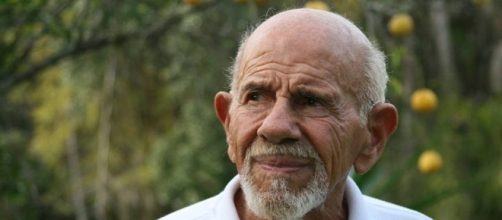He is 101. He has thought about cities forever. His name is Jaque Fresco. He has done more as an individual to open minds to the Future where people actually live and more than anyone to offer visualizations of what that might look like. If you have not heard of him, here is a starter kit, drawn from a video published on Futurism today and from files I have kept on Pinterest for some time. He is the only person I found whose thought and action had remotely to do with cybercommunities, my idea of integral communities of the future.
Sparse texts
Fresco and Christopher Alexander and the late C.
A. Doxiadis, with whom I once studied in Athens, are among the few who have had genuine prescience regarding the way to actually create a sustainable world. There are few articles available on any of these men, though all are known and significant in the field of urban studies. A report from Bloomberg published when Fresco was 100, described the thinking of the man who lives on property he calls the Venus Project in central Florida.
Technology ascendent
Some 600 fans were reported to have attended a birthday party for him. Fresco was known as the creator of a master plan of a "City of the Future" where all needs were met by technology and money was not required. Fresco was described as thinking that his city could be run by a computer.
There would be no need for politicians.
Can you picture a world without money? pic.twitter.com/Bakg2fYOmg
— Futurism (@futurism) April 24, 2017
This video is not forthcoming regarding the details of Fresco's vision but it does demonstrate the presence of the impulse to make some sort of leap between technology and the political realm. The following is a definite step in the direction of opening up the thinking. It proposes in essence that it is cheaper to start from scratch than try to rebuild existing cities.
The Venus Project: Designing the Future (World Lecture Tour Edition) https://t.co/UoyMJp5SC4
— Norma Vega (@NormaVegav) April 19, 2017
Cybercommunities encompass all elements of future development
Cybercommunities began with the basic idea that cars were the most conspicuous problem, physically, preventing the creation of new communities that would succeed the world now dominated by oil and automobiles.
The work of Fresco is significant because it actually illustrates the look of a new form of the city. My own thinking goes back to Buckminster Fuller, another who belongs in the pantheon of visionaries. I envision that ultimately we will require domelike structures I call matrixes to enable. within them, building that is modular, lightweight and entirely lego-like, able to be made into many different spatial forms. YouTube is the place to look for more on all these matters, particularly the work of Jaque Fresco.

